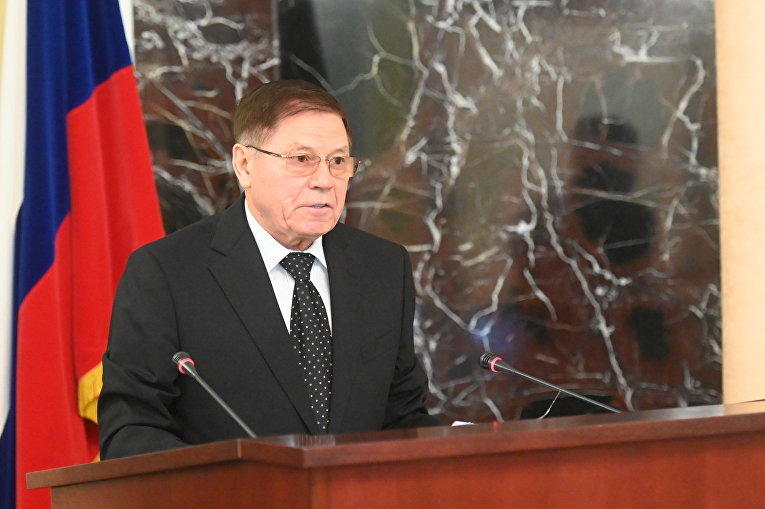MOSCOW, June 16 (RAPSI) — The Supreme Court is to discuss the possibility of expanding the list of criminal cases in which an exceptional procedure for choosing a measure of restraint in the form of detention is applied, as well as reducing the amounts of bails used as a measure of restraint, the Court’s head Vyacheslav Lebedev said addressing a meeting of delegates of the 10th All-Russian Congress of Judges.
The Russian Federation continued to implement systemic measures aimed at humanizing criminal legislation and law enforcement practice; therefore, it was necessary to study the practice of choosing and extending preventive measures, taking into account the legal positions of the Supreme Court on the wider application of preventive measures not related to detention, Lebedev said.
The Chairman of the Supreme Court also pointed out that the courts should pay attention in their analytical work to the issues of individualization of criminal penalties in compliance with the principles of justice and humanism.
According to Lebedev, the Supreme Court proposes to discuss the possibility of increasing the amount of damages provided for by the Criminal Code for economic crimes.
The Court comes up with a number of legislative initiatives: in order to improve administrative proceedings, it is proposed to provide for the possibility of simultaneously filing a claim for the recognition of a decision, action or inaction of a government body or official as illegal and a claim for compensation for moral harm caused by such a decision, action or inaction.
In connection with the changes made to the legislation on the state cadastral valuation, the Supreme Court of Russia will submit to the State Duma a bill providing for relevant changes in the procedure for considering cases to challenge the results of determination of the cadastral value, Lebedev noted.
In addition, draft federal laws have been prepared on the introduction of mandatory pre-trial settlement in cases where decisions, actions and inaction of customs and antimonopoly authorities are challenged, the Supreme Court Chairman said.



